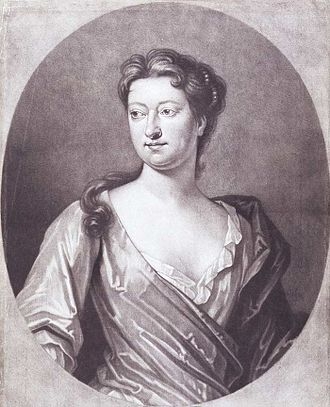The Platonick Lady
Book Details
| Title: | The Platonick Lady | ||||||||||
| Author: |
| ||||||||||
| Published: | 1706 | ||||||||||
| Tags: | comedy, drama, fiction, women playwrights | ||||||||||
| Description: | A lost heir, a rich lady with an unlikely accent and a maid called Toylet are just some of the ingredients in this comedy of manners. [Suggest a different description.] |
||||||||||
| Downloads: | 46 | ||||||||||
| Pages: | 119  |
Author Bio for Centlivre, Susanna

Susanna Centlivre (c. 1667 to 1670—1 December 1723), born Susanna Freeman and also known professionally as Susanna Carroll, was an English poet, actress, and "the most successful female playwright of the eighteenth century". Centlivre's "pieces continued to be acted after the theatre managers had forgotten most of her contemporaries." During a long career at the Theatre Royal, Drury Lane, she became known as the second woman of the English stage, after Aphra Behn.
Centlivre's plays show a strikingly liberal point of view. She wrote frankly in the face of strong sexual mores that discouraged women playwrights. Centlivre managed to push the boundaries of contemporary social norms, and yet she was widely appreciated only as a comic writer. She did not garner much positive critical acclaim. Although her plays enjoyed success in theatres, critics such as William Hazlitt wrote condescendingly of them. Alexander Pope found her writings offensive for political and religious reasons, and thought them a threat to greater dramatists by pandering to popular taste. He went so far as to assume that she had helped with Edmund Curll's pamphlet The Catholic Poet: or, Protestant Barnaby's Sorrowful Lamentation. For those reasons she was lampooned as having a supposedly mannish appearance (among other faults), most famously by Pope in several pieces. Regardless of her peers' opinions, her plays continued to be performed for over 150 years after her death.
Overall, Centlivre was a powerful influence on society as a female intellect. Her works encouraged female writers to continue to push the limits of traditional feminine roles by publicly treating the cause of equality between the sexes. The diarist Agnes Porter, governess to the children of the earl of Ilchester, saw a performance of Centlivre's The Busy Body at the Little Theatre, Haymarket on 7 March 1791, but wrote that it was "very badly performed".--Wikipedia.
Available Formats
No book directory. Upload has not been completed.This book is in the public domain in Canada, and is made available to you DRM-free. You may do whatever you like with this book, but mostly we hope you will read it.
Here at FadedPage and our companion site Distributed Proofreaders Canada, we pride ourselves on producing the best ebooks you can find. Please tell us about any errors you have found in this book, or in the information on this page about this book.